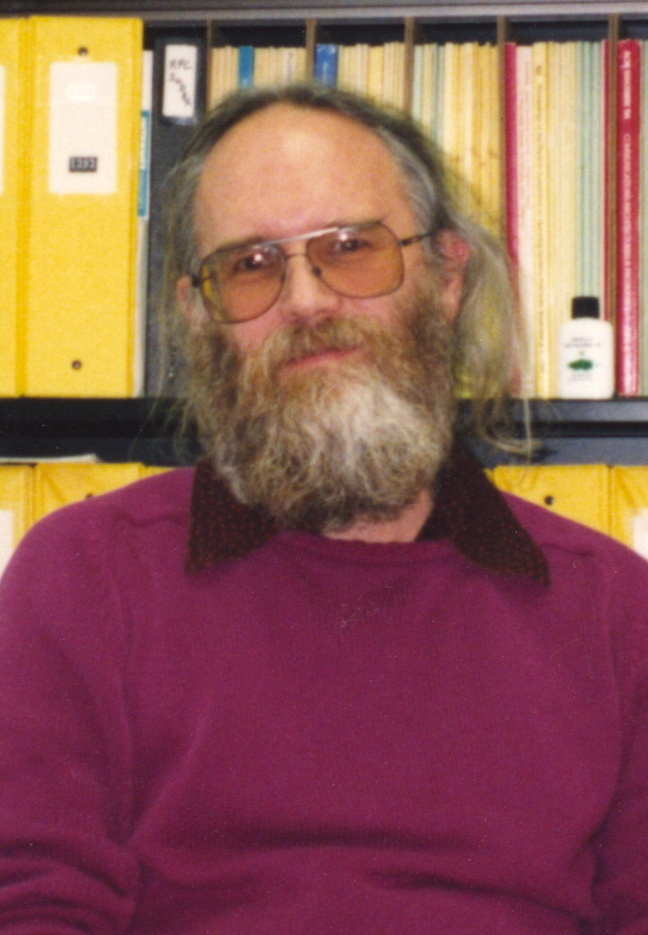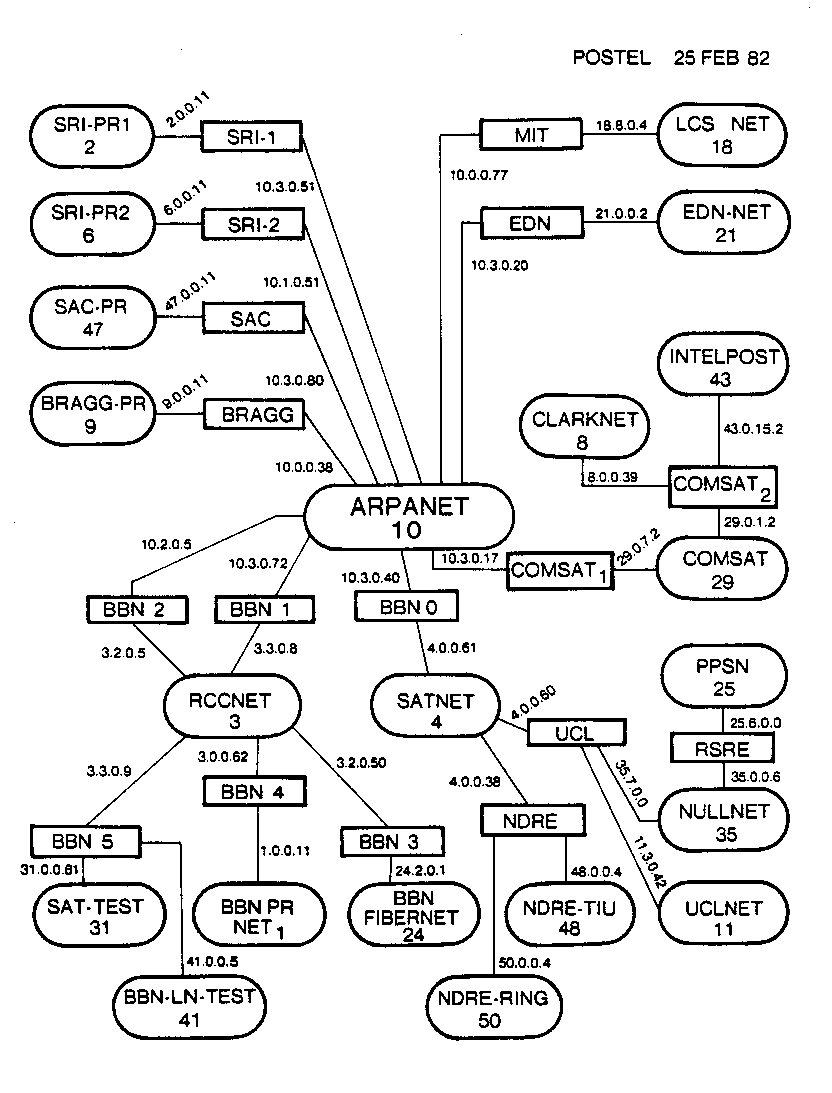1. Overview
Jonathan Bruce Postel (August 6, 1943 - October 16, 1998) was a pioneering American computer scientist whose extensive contributions were instrumental in the foundational development and ongoing administration of the Internet. He is best known for his pivotal role as the Editor of the Request for Comment (RFC) document series, his work on the Simple Mail Transfer Protocol (SMTP), and his lifelong administration of the Internet Assigned Numbers Authority (IANA). Postel's unwavering dedication to open standards and collaborative governance shaped the early Internet's decentralized nature. Often referred to as the "god of the Internet" due to his pervasive influence, Postel himself humbly countered this label, emphasizing that "The Internet works because a lot of people cooperate to do things together," underscoring his belief in collective effort over centralized authority. His legacy is deeply embedded in the Internet's architecture, particularly through his "robustness principle," widely known as 'Postel's Law', which promotes resilience and interoperability.

2. Early life and education
Jonathan Bruce Postel's journey into the world of computing began in Southern California, where he spent his formative years and pursued his higher education. His early life laid the groundwork for his significant contributions to the burgeoning field of computer networking.
2.1. Education
Postel attended Van Nuys High School in Los Angeles, California. While some accounts suggest his grades during his high school years were mediocre, he went on to achieve academic success at the University of California, Los Angeles (UCLA). At UCLA, he earned a Bachelor of Science (B.S.) degree in Engineering in 1966, followed by a Master of Science (M.S.) in Engineering in 1968. He further pursued doctoral studies, completing his Ph.D. in Computer Science in 1974, with Dave Farber serving as his thesis advisor.
2.2. Early career
Postel began his professional career at UCLA on December 23, 1969, as a Postgraduate Research Engineer (I). During this early period, he became deeply involved in the foundational work of the ARPANET, the precursor to the modern Internet. He collaborated closely with prominent figures like Vint Cerf and Steve Crocker, working on the implementation of many of the ARPANET's core protocols. Postel played a crucial role in instigating the development of a second set of protocols for handling data between different networks, which ultimately evolved into the Internet protocol suite (TCP/IP), a standard later largely designed by Cerf and Bob Kahn.

In August 1973, Postel left UCLA to join the MITRE Corporation. His work there included assisting with the InterNIC (Network Information Center), which was being established at SRI International by Elizabeth Feinler. In March 1977, he transitioned to the Information Sciences Institute (ISI) at the University of Southern California (USC), joining as a research scientist. Throughout these roles, Postel concurrently took on numerous part-time responsibilities related to Internet development and administration, all while maintaining his primary position as the Director of the Computer Networks Division (Division 7) at USC's Information Sciences Institute.
3. Contributions to Internet development
Jonathan Postel's career was characterized by profound and sustained contributions to the technical and administrative scaffolding of the Internet. His work was pivotal in establishing the core standards and organizational structures that allowed the global network to scale and operate effectively.
3.1. ARPANET and early protocol development
Postel's engagement with the ARPANET marked the beginning of his significant impact on network development. He was actively involved in the early stages of the ARPANET, collaborating with key researchers to define and implement its fundamental protocols. His influence extended to the evolution of TCP/IP, where he, along with Vint Cerf and Bob Kahn, was instrumental in developing the second set of protocols that became the bedrock of inter-network communication. This collaborative effort led to the establishment of principles such as the 'robustness principle', also known as 'Postel's Law', which became a guiding tenet for reliable network design.
3.2. RFC Editor and Internet standardization
From 1969 until his death, Postel held the unique and crucial position of the RFC Editor, a role through which he oversaw the publication of the Request for Comments (RFC) document series. This series serves as the definitive technical and organizational notes for the Internet. In this capacity, Postel authored or co-authored more than 20 RFCs, including some of the most fundamental documents that define the Internet protocol suite. Notably, he wrote or co-authored RFC 791 (which defines the IP), RFC 792 (defining the ICMP), and RFC 793 (defining the TCP). He also authored RFC 2223, titled "Instructions to RFC Authors," which guided the process of creating these vital documents. Furthermore, between 1982 and 1984, Postel co-authored several RFCs (RFC 819, RFC 881, RFC 882, and RFC 920) that laid the foundation for the modern Domain Name System (DNS), and in 1995, he co-wrote RFC 1591, which further elaborated on DNS administration. His meticulous work as RFC Editor ensured consistency and clarity in the documentation of Internet standards.
3.3. IANA administration and domain name system
Postel's administrative role was as critical as his technical contributions. From its inception, he served as the Director of the Internet Assigned Numbers Authority (IANA), the central clearinghouse responsible for managing Internet name and number assignments. This included the allocation of IP addresses, the assignment of protocol parameters, and the coordination of DNS root zone management. He was also the original and long-time administrator of the .us top-level domain. Beyond IANA, Postel was a founding member of the Internet Society and served on its Board of Trustees, and also served on the Internet Architecture Board (IAB) for many years. He also managed the Los Nettos Network. These diverse responsibilities underscore his comprehensive involvement in ensuring the functional operation and stable growth of the global Internet infrastructure.

4. Death
Jonathan Postel died on October 16, 1998, at the age of 55, in Los Angeles, California. His passing was attributed to complications that arose from heart surgery. He had undergone a procedure to replace a leaking heart valve and was in the recovery phase when he succumbed.
5. Legacy and recognition
Jonathan Postel's contributions to the Internet are widely regarded as fundamental and enduring. His technical expertise, administrative diligence, and commitment to open, collaborative principles left an indelible mark on the global network's architecture and operation.
5.1. Postel's Law (Robustness Principle)
Perhaps Postel's most famous and widely cited legacy is the "robustness principle," commonly known as 'Postel's Law'. This principle, which he articulated in RFC 760 (and reworded in RFC 1122), states: "Be conservative in what you do, be liberal in what you accept from others." The principle was originally summarized by Postel in RFC 793, "Transmission Control Protocol," where he stated: "TCP implementations will follow a general principle of robustness: be conservative in what you do, be liberal in what you accept from others." In the context of network protocols, this means that an implementation should strictly adhere to specifications when sending data, but be forgiving and flexible when receiving data from other implementations, even if those implementations deviate slightly from the standard. This philosophy significantly contributed to the interoperability and resilience of the early Internet, allowing diverse systems to communicate effectively despite minor imperfections.
5.2. Honors and commemorations
Postel's profound impact has been recognized through various honors and commemorations. The Postel Center at the Information Sciences Institute at the University of Southern California was established in his honor. The Internet Society annually presents the Jonathan B. Postel Service Award, which recognizes individuals who have made outstanding contributions in service to the data communications community. Postel himself was the posthumous inaugural recipient of this award in 1999, which was created by Vint Cerf and announced in RFC 2468, titled "I Remember IANA," a memorial recollection of Postel's life and work. Another tribute, RFC 2441, "Working with Jon," was written by Danny Cohen. In 2012, Postel was posthumously inducted into the Internet Hall of Fame. Further acknowledging his global impact, the Channel Islands' Domain Registry building was named after him in early 2016.
6. External links
- [http://www.postel.org/ postel.org] - Research center at USC/ISI created in his honor.